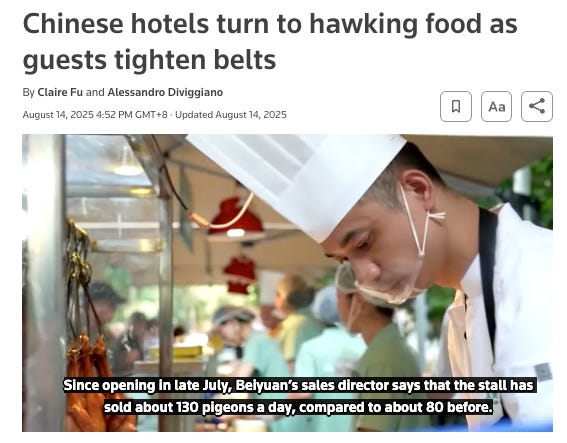How China’s hotel industry is transforming into a lifestyle business
Young Chinese are "lying flat" in hotels—here‘s why
What does it look like when China's high-end hotels hit a wall? It looks like the Beiyuan Grand Hotel in Beijing, where staff set up street stalls every evening to hawk their signature crispy roast pigeon for 38 yuan ($5.29) a bird—a steep discount from the 58 yuan it costs inside.
This isn't an isolated case. From Beijing to Chongqing, luxury hotels are turning to street food sales to earn extra cash. [Reuters]
In fact, this isn’t just happening in hotels—I've also seen this kind of "survival-mode" selling on flights and high-speed trains. On a Capital Airlines flight last year, for instance, a flight attendant "live-streamed" for half an hour, pitching everything from a plane model built with traditional mortise-and-tenon joints (bundled with a 288 RMB educational course) to beauty products like the trendy Bosein eye cream, plus the same brand of aviator sunglasses worn by famous actor Zhang Hanyu. One of the items was even a blind box designed by the captain himself, tapping into China's blind-box craze. (I have to say, the flight attendant was an excellent salesperson—her pitch skills were definitely underrated.)
This scramble for cash reflects a harsh reality: Chinese consumers and companies are indeed tightening their belts.
But this is only half the story.




